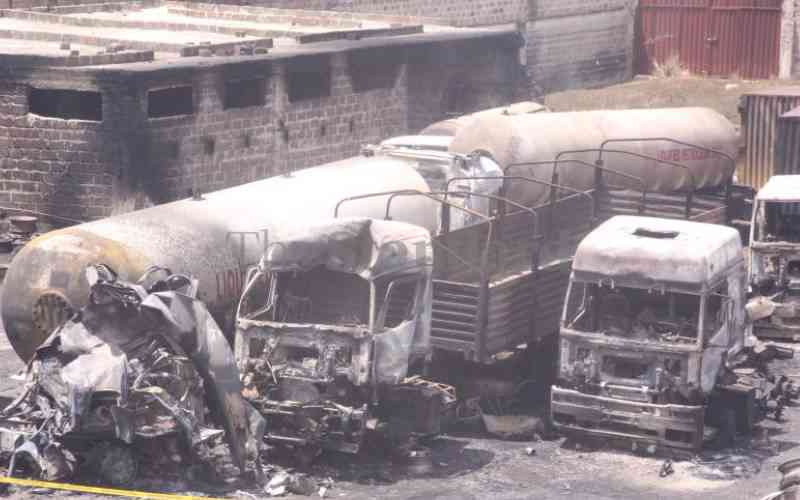×
The Standard e-Paper
Stay Informed, Even Offline

The firm that had been operating the cooking gas plant that caused a major explosion Thursday night at Nairobi's Embakasi was operating illegally.
It is emerging that the owners of the cooking gas storage and filling plant that was the source of the explosion were convicted criminals. The high court had last year found them guilty of operating the plant illegally.